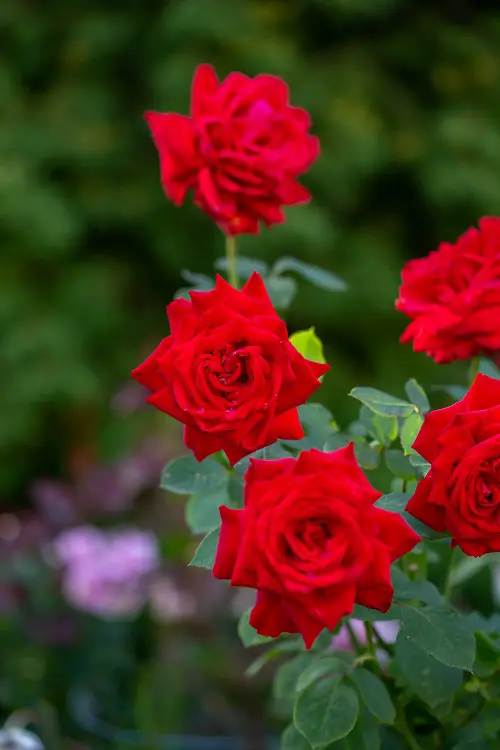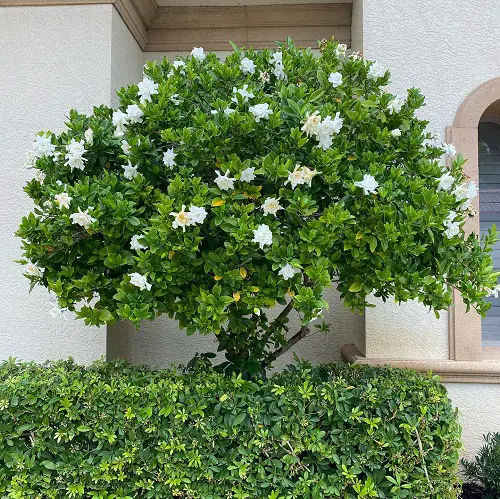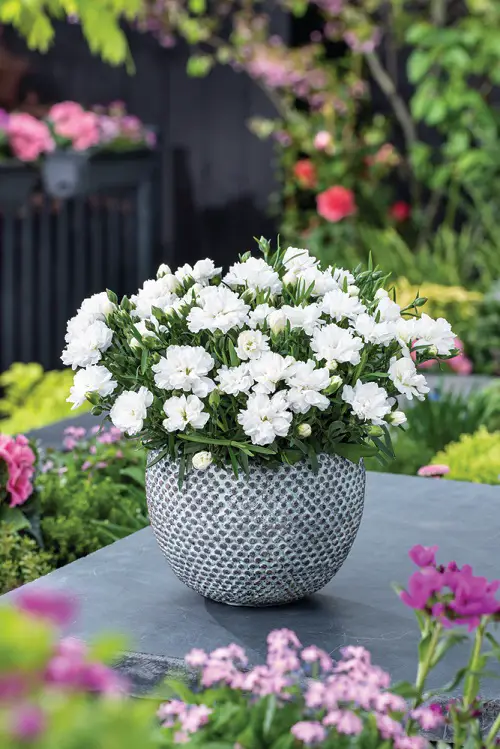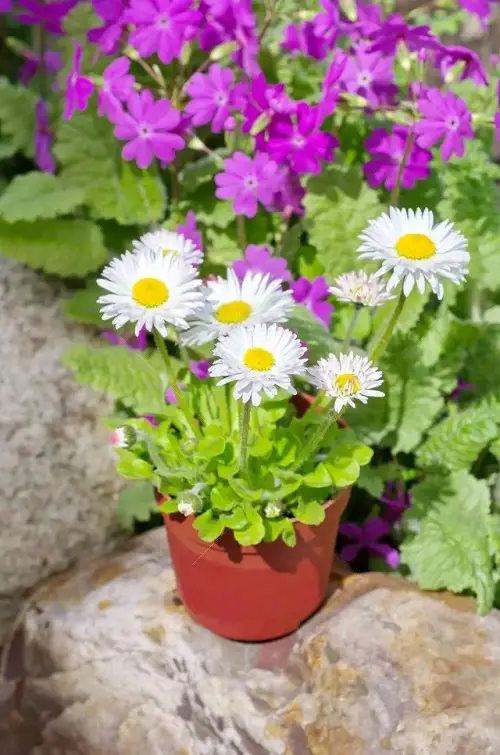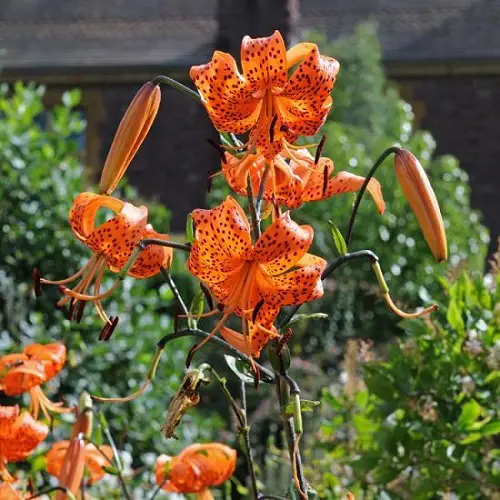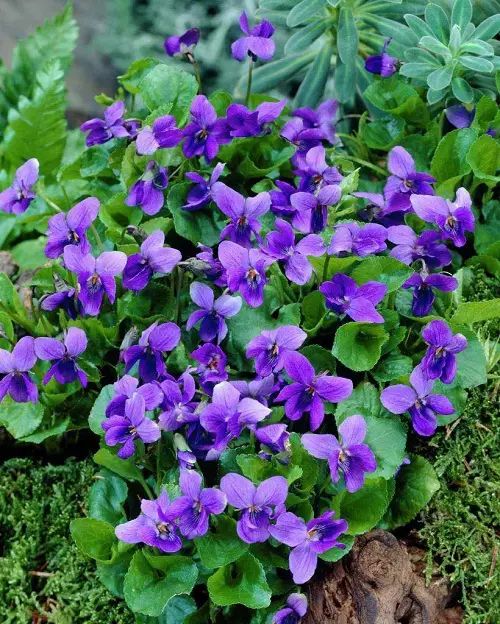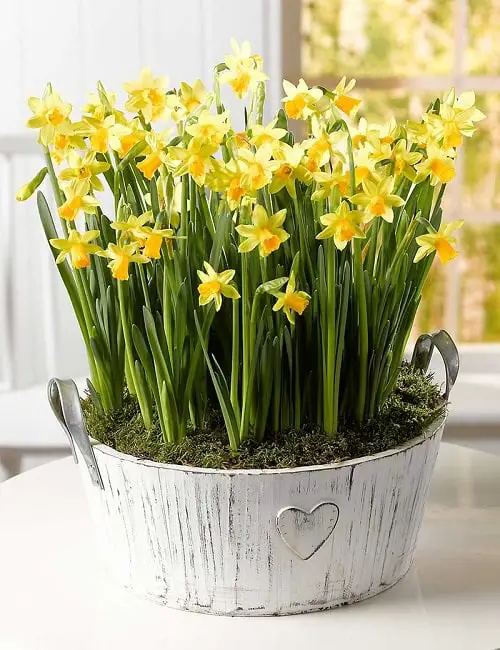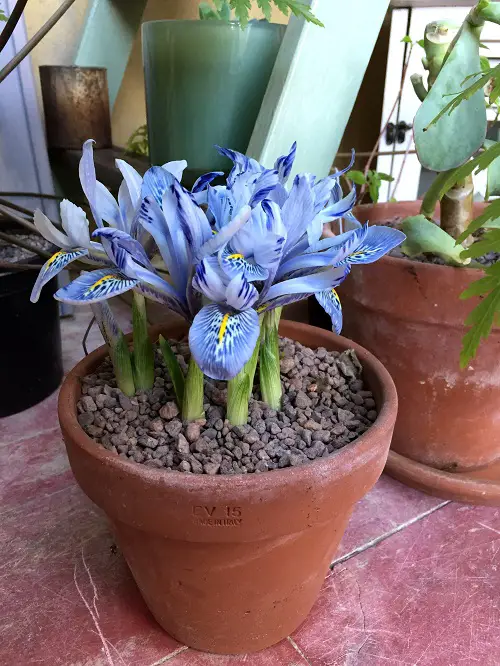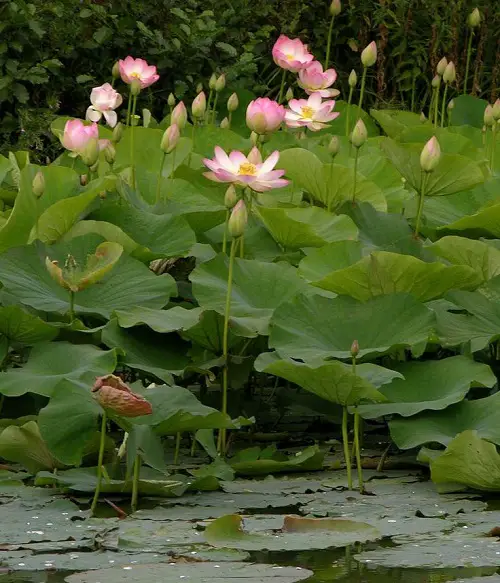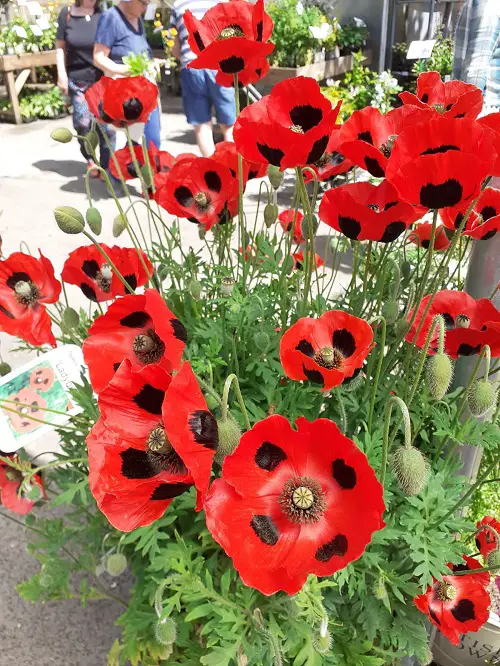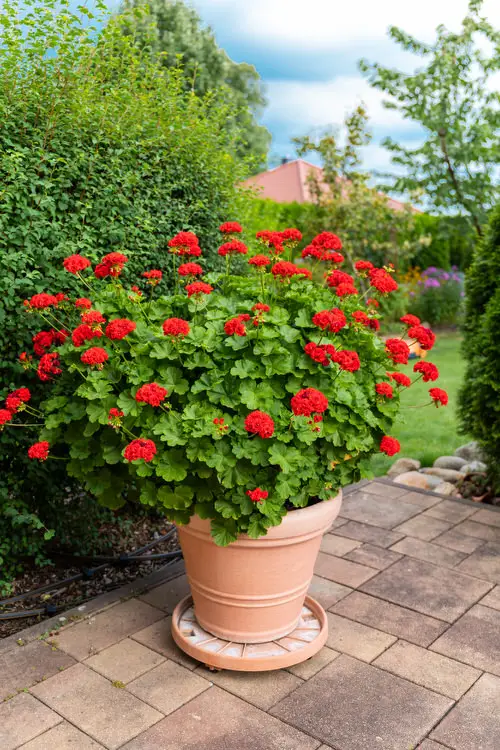Check out the list of best Flowers that Represent Family that embody the unbreakable ties and cherished unity with blood members.
Each flower carries a unique story, deeply rooted in mythology, folklore, and traditional customs, making them timeless symbols of love, unity, and devotion within familial relationships. From the romantic allure of roses to the resilient spirit of tiger lilies, and the tranquil beauty of lotus flowers, this article delves into the cultural references and meanings associated with each flower. Join us on a journey through the language of flowers as we uncover the profound significance of these botanical treasures in celebrating and honoring family bonds.
Flowers that Represent Family
1. Roses
Botanical Name: Rosa
First on the list of flowers that represent family is the rose. Roses have been deeply ingrained in cultural symbolism across the world. In many cultures, they are associated with love, romance, and beauty, making them timeless symbols of affection and devotion within families.
For example, in ancient Greek mythology, roses were linked to Aphrodite, the goddess of love. In Chinese culture, red roses symbolize luck and happiness, often used in family celebrations and weddings.
Throughout history, roses have been exchanged as tokens of love and appreciation among family members, embodying sentiments of deep connection and admiration.
Here is How to Grow Roses from Bouquets
2. Lilacs
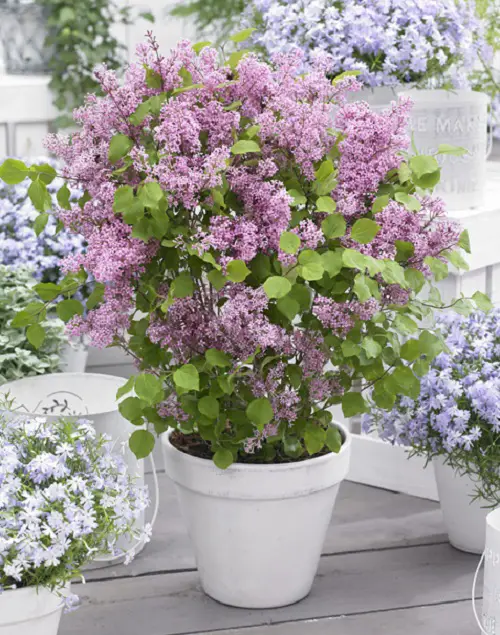
Botanical Name: Syringa
Lilacs hold special significance in various cultures, symbolizing love, renewal, and hope within families.
In Celtic folklore, lilacs were believed to ward off evil spirits and bring protection to homes, highlighting their role in fostering a sense of security and harmony within family units.
Their fragrant blooms and delicate colors have made them timeless symbols of familial love and unity across different cultural traditions.
3. Gardenias
Botanical Name: Gardenia jasminoides
Gardenias have a rich cultural heritage, symbolizing purity, love, and togetherness within families.
In many Asian cultures, gardenias are associated with purity and spirituality, often used in religious ceremonies and family rituals to symbolize devotion and reverence. Across cultures, they represent the family bond and are frequently included in wedding ceremonies, symbolizing the union of two families.
Their exquisite beauty and sweet fragrance have made them enduring symbols of familial bonds and the enduring strength of love.
4. Azaleas
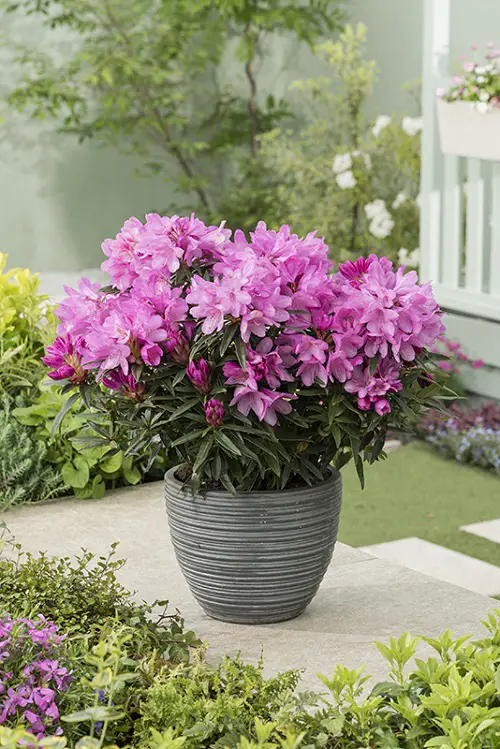
Botanical Name: Rhododendron
Azaleas have cultural significance in various parts of the world, symbolizing passion, beauty, and devotion within families.
In Japan, azaleas are associated with spring festivals and represent the fleeting nature of beauty, reminding families to cherish moments together. In Chinese culture, azaleas are symbols of womanhood and femininity, often used in family celebrations to honor mothers and grandmothers.
Their vibrant colors and lush blooms make them popular choices for gardens and family gatherings, reflecting the deep emotional connections and affection shared among family members.
5. Carnations
Botanical Name: Dianthus caryophyllus
Carnations have a long history of cultural symbolism, representing love, admiration, and appreciation within families.
In ancient Rome, carnations were used in family ceremonies and rituals to honor ancestors and express respect. In Christian traditions, white carnations are associated with purity and divine love, often used in family events such as weddings and baptisms.
Their diverse colors and delicate petals make them versatile symbols of familial love and gratitude, cherished for their beauty and symbolic meaning in family dynamics.
6. Peonies
Botanical Name: Paeonia
Peonies hold cultural significance in many cultures, symbolizing honor, prosperity, and compassion within families.
In Chinese culture, peonies are revered as symbols of wealth and prosperity, often used in family celebrations and festivals to bring good fortune. In Japanese art and literature, peonies are associated with beauty and grace, representing the harmonious balance within family relationships.
Their lush blooms and vibrant colors make them popular symbols of abundance and happiness, reflecting the deep-rooted values and blessings found within familial bonds.
7. Tulips
Botanical Name: Tulipa
Tulips have cultural importance across various cultures, symbolizing loyalty, beauty, and devotion within families.
In Dutch culture, tulips are symbols of love and prosperity, often exchanged among family members as tokens of affection and appreciation. In Persian poetry, tulips are associated with spring and renewal, representing the rejuvenation of family ties and the beauty of new beginnings.
Their elegant blooms and vibrant colors make them timeless symbols of familial love and the enduring bond shared among family members.
8. Daisies
Botanical Name: Bellis perennis
Daisies carry cultural symbolism in folklore and traditions, representing innocence, simplicity, and purity within families.
In Celtic mythology, daisies were believed to be sacred flowers that brought joy and protection to families, often used in rituals to ward off negativity and bring blessings.
Their bright blooms and charming appeal make them beloved symbols of familial love and the pure joy found in family relationships.
9. Hydrangeas

Botanical Name: Hydrangea
Hydrangeas have cultural significance in various traditions, symbolizing gratitude, abundance, and heartfelt emotions within families.
In Japanese culture, hydrangeas are symbols of gratitude and apology, often given as gifts to express appreciation and sincerity.
In European folklore, hydrangeas were associated with protection and healing, believed to bring blessings and positive energy to homes and families. Their large, showy blooms and diverse colors make them meaningful symbols of familial love and the deep emotional connections shared among family members.
Here’s everything you need to know about growing Hydrangeas
10. Yarrow
Botanical Name: Achillea millefolium
Yarrow carries cultural symbolism in herbalism and folklore, representing healing, protection, and resilience within family dynamics.
In ancient Greek mythology, yarrow was believed to have healing powers and was used in rituals to promote well-being and protection for families.
In Native American traditions, yarrow was considered a sacred plant that brought strength and courage to families facing challenges. Its aromatic foliage and delicate flowers make it a potent symbol of familial support and the ability to overcome adversity together.
11. Tiger lilies
Botanical Name: Lilium lancifolium
Tiger lilies have cultural significance in various cultures, symbolizing strength, courage, and prosperity within families.
In Chinese culture, tiger lilies are symbols of wealth and good fortune, often used in family celebrations and rituals to bring blessings and prosperity. In Native American folklore, tiger lilies were associated with courage and resilience, believed to protect families from harm and adversity.
Their bold colors and striking appearance make them powerful symbols of familial bonds and the ability to thrive and prosper together.
12. Violet
Botanical Name: Viola odorata
Violets carry cultural symbolism in art, literature, and folklore, representing loyalty, faithfulness, and devotion within family relationships.
In Victorian England, violets were symbols of loyalty and faithfulness, often exchanged among family members to express steadfast love and devotion. In Christian symbolism, violets are associated with humility and virtue, embodying the qualities of grace and compassion within familial bonds.
Their charming blooms and rich colors make them timeless symbols of enduring love and the deep emotional connections shared among family members.
13. Sunflower
Botanical Name: Helianthus annuus
Sunflowers have cultural significance in various traditions, symbolizing warmth, happiness, and positivity within families.
In Native American symbolism, sunflowers were associated with prosperity and abundance, often used in family rituals to bring blessings and good fortune. In Mexican culture, sunflowers are symbols of joy and celebration, used in family events and festivals to create a festive and uplifting atmosphere.
Their bright blooms and sunny disposition make them powerful symbols of familial love and the joyful moments shared among family members.
Here is How To Grow Sunflowers On The Balcony
14. Daffodil
Botanical Name: Narcissus
When considering flowers that embody the essence of family, the daffodil emerges as a remarkable choice. Its vibrant yellow hue signifies cheerfulness and joy, while its distinct trumpet-like shape bears a resemblance to a beloved family member’s voice reaching out to us.
In Welsh folklore, daffodils were believed to bring good luck and prosperity to families, often planted around homes to ward off negativity and bring blessings.
Their vibrant yellow blooms and resilient nature make them potent symbols of optimism and the potential for growth and renewal within family dynamics.
15. Iris
Botanical Name: Iris
Irises hold cultural significance in art, mythology, and spirituality, symbolizing wisdom, faith, and courage within families.
In ancient Egypt, irises were symbols of protection and wisdom, often used in family rituals and ceremonies to bring blessings and divine guidance. In Greek mythology, irises were associated with the goddess Iris, who served as a messenger between gods and mortals, symbolizing communication and understanding within familial bonds.
Their elegant blooms and symbolic colors make them powerful symbols of familial values and the pursuit of truth and knowledge.
16. Lotus
Botanical Name: Nelumbo nucifera
Lotus flowers carry deep cultural symbolism in spirituality, representing purity, enlightenment, and spiritual growth within family connections.
In Hinduism and Buddhism, lotus flowers are sacred symbols of divine beauty and spiritual awakening, often used in family rituals and ceremonies to bring blessings and blessings. In ancient Egypt, lotus flowers were symbols of rebirth and regeneration, believed to bring prosperity and good fortune to families.
Their serene beauty and symbolic significance make them powerful symbols of harmony and enlightenment within familial bonds.
Here is How to Grow Lotus
17. Poppy
Botanical Name: Papaver
Greek mythology intertwines the poppy with the goddess Demeter, revered as the mother of Persephone and the goddess of the harvest. As a symbol of motherhood and familial unity, the poppy epitomizes Demeter’s profound love for her daughter.
Poppies symbolize remembrance, loyalty, and resilience within family legacies.
18. Geranium
Botanical Name: Pelargonium

